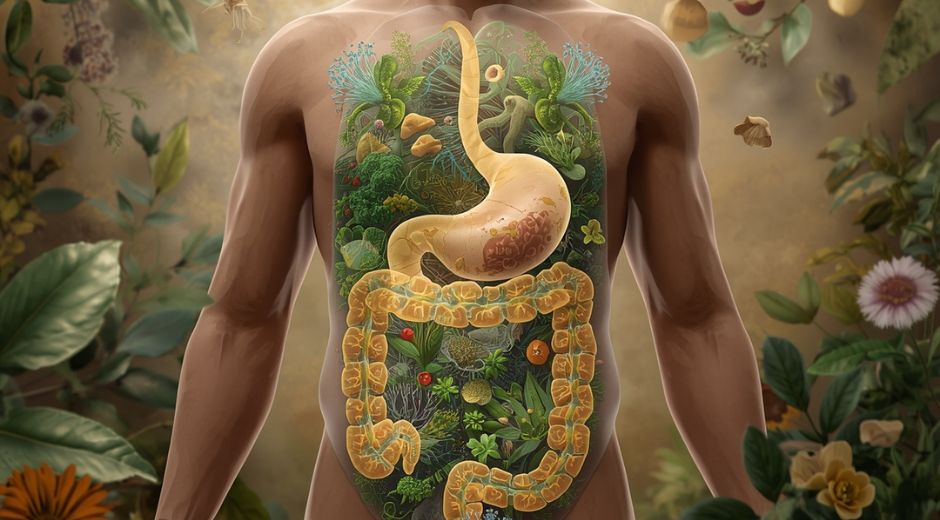Microbiome Balance: Optimizing Gut Health for Overall Wellness
Microbiome Balance: Optimizing Gut Health for Overall Wellness
The human gut contains trillions of microorganisms collectively known as the microbiome. These bacteria, viruses, and fungi play a vital role in digestion, immunity, metabolism, and even mental health. Achieving microbiome balance is critical for maintaining overall wellness, enhancing energy, supporting nutrient absorption, and preventing disease.
The Science Behind Plant-Based Recovery
Recovery after intense physical activity involves replenishing glycogen stores, repairing muscle tissue, and reducing inflammation. Traditional approaches often emphasize animal proteins, but research shows that well-planned plant-based recovery can be equally effective. Foods such as lentils, chickpeas, quinoa, tofu, and leafy greens provide the amino acids, micronutrients, and antioxidants necessary for optimal post-exercise recovery.
According to Healthline.com, plant-based diets can reduce oxidative stress, enhance cardiovascular health, and improve metabolic efficiency, all of which contribute to faster and more effective recovery.
Understanding Microbiome Balance
Microbiome balance refers to a healthy equilibrium between beneficial and potentially harmful gut microorganisms. An imbalanced microbiome sometimes caused by poor diet, stress, antibiotics, or environmental factors can lead to digestive issues, inflammation, and weakened immunity. According to Healthline.com, a well-balanced microbiome contributes to efficient digestion, robust immunity, and optimal nutrient utilization.
The key components of a healthy microbiome include:
Diversity: A wide variety of bacterial species is associated with better resilience and overall health.
Stability: Maintaining consistent gut flora reduces susceptibility to infections and inflammation.
Symbiosis: Beneficial microbes help break down food, synthesize vitamins, and suppress harmful pathogens.
Benefits of Microbiome Balance
1. Digestive Health
A balanced microbiome supports efficient digestion and nutrient absorption. Beneficial bacteria help break down fibers and complex carbohydrates into short-chain fatty acids, which fuel gut cells and support intestinal health.
2. Immune System Support
Up to 70% of immune cells reside in the gut. Maintaining microbiome balance strengthens immune function, helping the body respond effectively to pathogens and reduce chronic inflammation.
3. Mental Health and Mood
Emerging research links gut health to brain function through the gut-brain axis. A balanced microbiome positively influences neurotransmitters such as serotonin and GABA, which regulate mood, sleep, and cognitive function.
4. Metabolic Health
Gut bacteria influence metabolism, blood sugar regulation, and weight management. An optimized microbiome improves energy efficiency, reduces inflammation, and supports healthy body composition.
Strategies to Achieve Microbiome Balance
1. Diverse Plant-Based Diet
A high-fiber, plant-forward diet promotes the growth of beneficial bacteria. Include a variety of vegetables, fruits, legumes, whole grains, nuts, and seeds to increase microbial diversity.
2. Fermented Foods
Fermented foods like yogurt, kefir, kimchi, sauerkraut, and miso introduce live probiotics that enhance gut flora. These foods improve digestion and support microbiome balance naturally.
3. Prebiotic-Rich Foods
Prebiotics are fibers that feed beneficial gut bacteria. Foods high in prebiotics include:
Garlic and onions
Leeks and asparagus
Bananas and apples
Oats and barley
Incorporating prebiotics promotes the growth and activity of healthy microbes.
4. Reduce Processed and Sugary Foods
Excessive refined sugar, processed foods, and artificial additives can promote the growth of harmful bacteria, disrupting microbiome balance. Minimizing these foods helps maintain microbial equilibrium.
5. Mindful Antibiotic Use
While antibiotics are sometimes necessary, overuse can disrupt gut microbiota. If antibiotics are required, supporting the gut with probiotics and fiber-rich foods can accelerate recovery.
6. Regular Physical Activity
Exercise positively affects gut diversity and microbial health. Aerobic activity, resistance training, and functional movement routines enhance microbiome balance and overall metabolic function.
7. Stress Management
Chronic stress negatively impacts gut bacteria. Incorporating mindfulness, meditation, and relaxation techniques supports the gut-brain axis and promotes microbial stability.
8. Adequate Sleep
Sleep deprivation disrupts circadian rhythms and negatively affects microbiome composition. Prioritizing restorative sleep supports digestion, immunity, and overall health.
Sample Daily Meal Plan for Microbiome Balance
Breakfast
Overnight oats with chia seeds, blueberries, and almond milk
Side of fermented yogurt with live cultures
Lunch
Quinoa salad with roasted vegetables, chickpeas, and tahini dressing
Apple slices as prebiotic-rich snacks
Snack
Kombucha or kefir for probiotic support
Handful of nuts for fiber and healthy fats
Dinner
Lentil and vegetable stew with garlic and onions
Side of steamed broccoli and sautéed kimchi
Hydration
Water throughout the day
Herbal teas with ginger or peppermint to aid digestion
Challenges in Maintaining Microbiome Balance
Limited Access to Fresh Foods
Urban lifestyles may limit access to fresh produce and fermented foods. Planning meals, using delivery services, and incorporating frozen vegetables can help maintain a nutrient-dense diet.
Picky Eating Habits
Some individuals resist fermented or plant-rich foods. Gradual introduction and creative recipes can improve acceptance.
Chronic Stress and Poor Sleep
Modern life challenges can disrupt gut health. Consistent sleep schedules, stress management, and relaxation practices support microbiome balance despite daily pressures.
The Role of Supplements
While a balanced diet is the foundation, probiotics and prebiotics supplements can support microbiome balance in specific cases. Always consult with a healthcare professional before starting supplementation.
Scientific Insights
Research shows that increased microbial diversity correlates with reduced inflammation, better metabolic health, and improved immunity. Maintaining microbiome balance not only supports digestive function but also contributes to long-term wellness and disease prevention.
Integrating Technology and Resources
Digital tools such as food tracking apps, microbiome testing kits, and educational platforms can guide dietary adjustments and monitor gut health. Bodywellnessgroup.com provides resources for integrating nutrition tracking with gut health optimization.
Family and Community Impact
Gut health is not only individual but can affect family wellness. CoolParentingTips.com highlights strategies for fostering healthy eating habits in children, ensuring they develop strong microbiomes from an early age.
Conclusion
Microbiome balance is foundational for optimal health. By combining a diverse plant-based diet, fermented and prebiotic-rich foods, exercise, stress management, and restorative sleep, individuals can enhance digestion, immunity, mental health, and overall wellness. Incorporating mindful practices and leveraging technology ensures sustainable gut health strategies.
For detailed nutrition guidance and gut health resources, visit Bodywellnessgroup.com. For evidence-based nutrition advice, see Healthline.com, and for family-focused healthy eating tips, check CoolParentingTips.com.
Adopting strategies to maintain microbiome balance empowers individuals to achieve lasting health, vitality, and resilience in a fast-paced, modern lifestyle.
Wellness Made Simple

Energy Balance Habits For Sustainable Performance
Energy Balance Habits For Sustainable Performance

Holistic Body Care Beyond Exercise And Diet
Holistic Body Care Beyond Exercise And Diet

Physical Ease Practices For Pain Free Movement
Physical Ease Practices For Pain Free Movement

Why Athletes Load Manage: Protecting the Body for the Long Game
Why Athletes Load Manage: Protecting the Body for the Long Game

Wellness Rhythm For Balanced Daily Living
Wellness Rhythm For Balanced Daily Living

Building Body Resilience Through Consistent Habits
Building Body Resilience Through Consistent Habits

Movement For Wellness Without Overtraining
Movement For Wellness Without Overtraining

Calm Body Practices For Stress Sensitive Nervous Systems
Calm Body Practices For Stress Sensitive Nervous Systems

Rest And Renewal Practices For Mental And Physical Health
Rest And Renewal Practices For Mental And Physical Health

Everyday Body Care Habits For Overall Wellbeing
Everyday Body Care Habits For Overall Wellbeing













